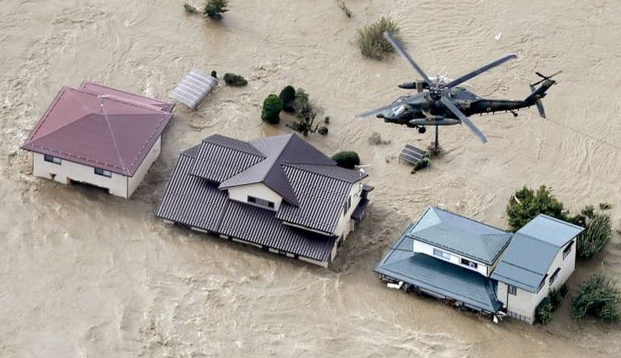Typhoon Hagibis that hit Japan on Saturday 12 October 2019 has caused extensive destruction in central and northern Japan. The government designated it as a Specified Disaster.
Immediately after the disaster, Japanese cooperatives started to contribute to recovery efforts in collaboration with different national stakeholders. The following is based on a report provided by the Japan Co-operative Alliance (JCA) as of 18 October 2019.
Agricultural producer cooperatives have set up emergency headquarters in each affected prefecture to assess the damage and coordinate recovery support work. The Central Union of Agricultural Cooperatives (JA Zenchu) set up the central emergency task force to coordinate recovery efforts at national level, including the possible application of support schemes implemented for the past disasters (e.g. donation and dispatch of volunteers).
Consumer cooperatives in the affected areas started delivering relief supplies (e.g. food, drink, diapers) to those affected based on cooperation agreements with local governments in the event of disasters.
Some consumer cooperatives also launched calls for donations to assist the affected communities. They also initiated projects to support producers in the affected areas.
Financial cooperatives (e.g. JA Bank, JF Marine Bank, Rokin Labour Bank) support affected members/users, including through providing special loans for rebuilding houses and livelihoods and allowing withdrawal of deposits without the presentation of passbooks and seals that are usually required.
Insurance cooperatives (e.g. JA Kyosai, Kokumin Kyosai, Co-op Kyosai) are committed to the prompt payment of benefits including through the simplification of procedures to members in affected communities.
National Federation of Forest Owners’ Cooperative Associations adopted an emergency resolution on the recovery from Typhoon Hagibis, cementing its support to rebuild livelihoods of affected members and workers and restore forests and communities in affected areas.
Courtesy -ILO





